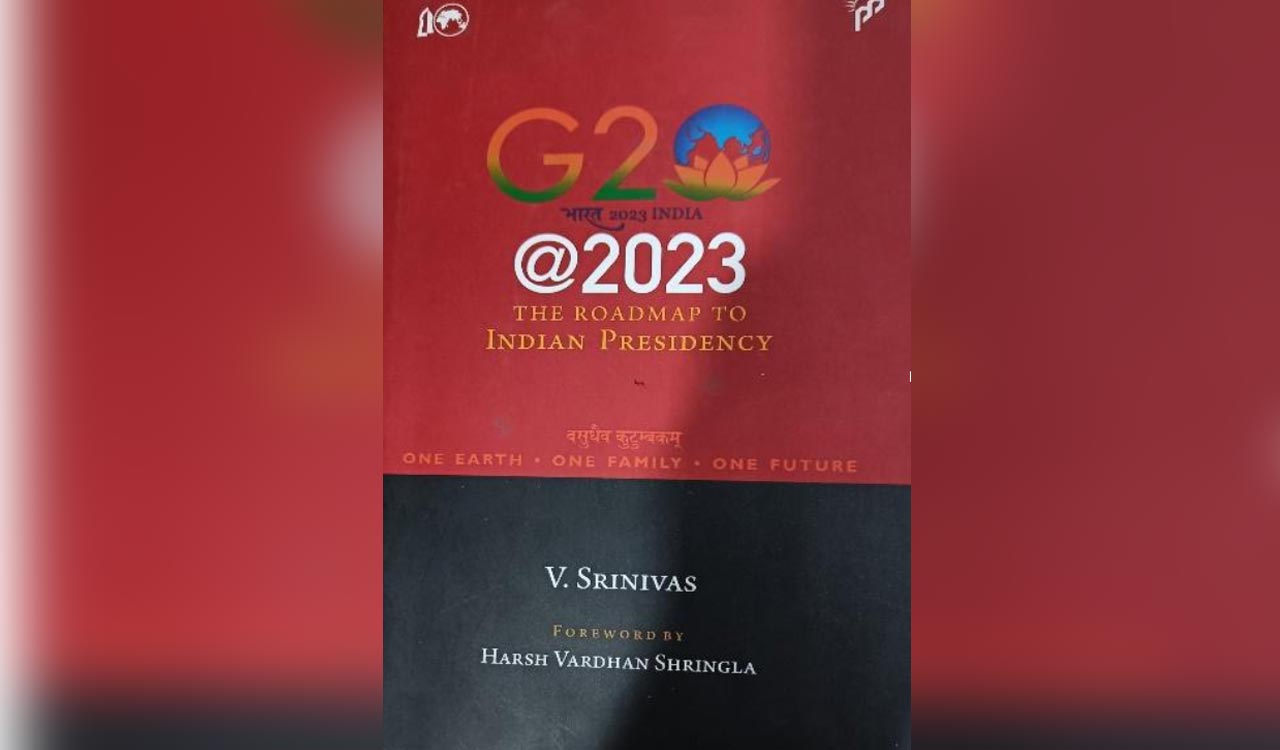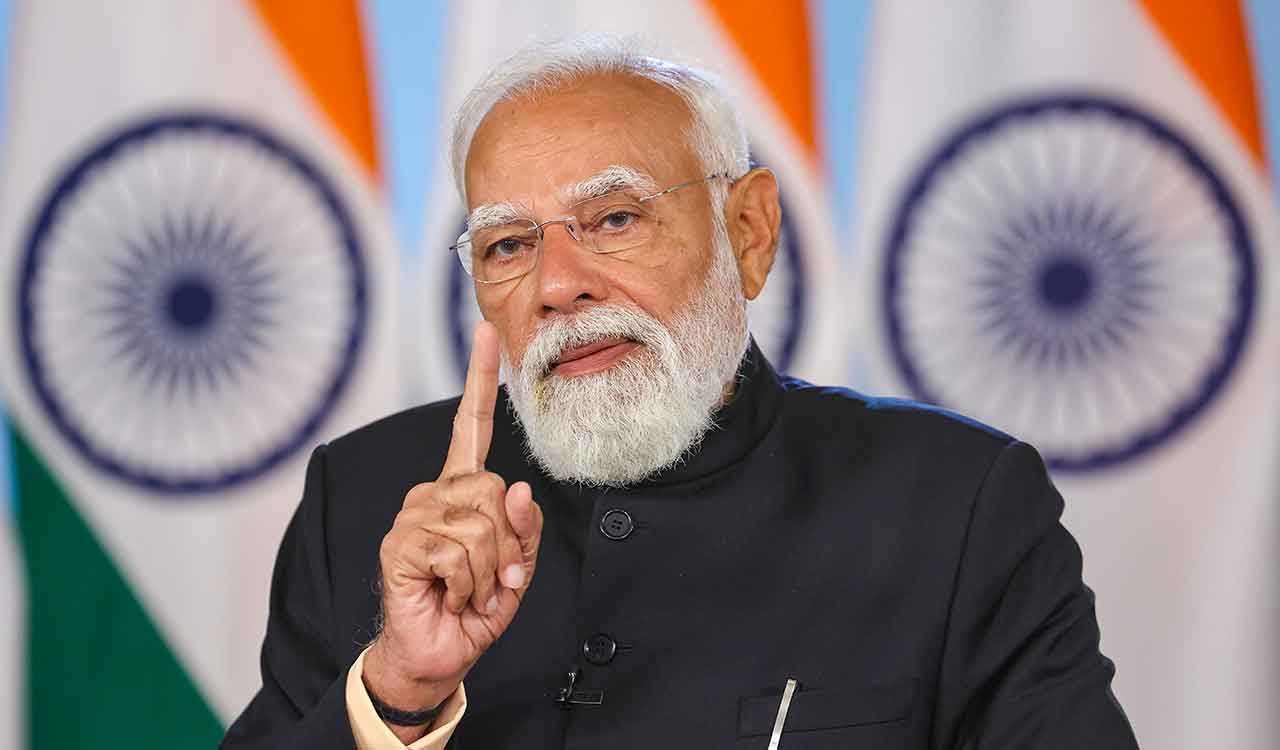Book Review: ‘G20@2023 – The Roadmap to India’s Presidency’ is a treasure house
The author has done great service to both the national and international communities in bringing out this remarkable publication that would immensely help the students and researchers of international studies.

G-20@2023 – The Roadmap To Indian Presidency: By V. Srinivas,
Publisher: Indian Council of World Affairs (ICWA) & Pentagon Press, Price Rs.995/-.
Also Read
Srinivas, a civil servant by profession, released his book on G20@2023 – The Roadmap to India’s Presidency at the most opportune time to fill the knowledge gap in this area in a capsule form within just 106 pages the quintessence of the Summits that took place during the last eighteen years. Rest of the book consists of the summary of deliberations at a few important summits of consequence. This is a research project funded by the ICWA. Author’s grip on the subject mirrors his experience at the IMF.
India started drawing global attention with its ascendancy to the fifth fastest growing nation this “G20 Presidency would be one of the most significant milestones of Indian Democracy.”
That world of shared interests among the top nations no longer exists. It is no surprise, then, that consensus on key issues eludes the G20 today. Today’s challenges in this turbo charged world prove far different due to the dragging conflict between Ukraine and Russia, Russia’s continued emphasis on unipolar approach, Energy Crisis, Crypto Crisis that changed the world of finance, post-pandemic uncertainties on the varying effects of Covid-19 still haunting the humanity, the crisis of climate change, inflation, and unemployment challenges. India’s Presidency has to effectively address the daunting task of unbearable debt burden of the 60-odd low-income economies of the world.
In the very first chapter the author says: ‘India has the responsibility to bring stability to a deeply divided multi-polar world and crafting global responses to the challenges.’ The theme of India’s Presidency is ‘Vasudhaika Kutumam’ – One Earth, One Family, One Future.’ The agenda for India @2023 will be of healing, harmony, and hope.
PM Modi’s ascendency to G-20 Presidency must have been on works since his address to the UN General Assembly, Un Environmental Program, BRICS meetings in 2020, and UNECOSOC. While conferring the Award, the Champion of Earth for Policy Leadership, UN Secretary-General Antonio Guterres said: ‘the World needs bold leadership and I thank India for setting an example.’
The intergovernmental group, G-20 which includes 19 countries and the European Union, is being headed by India for the next one year. According to the official data, India will host over 200 meetings in over 50 cities across 32 different work streams over the course of the year, spread over to different cities and domains. The biggest challenge for India is bringing about synthesis in thinking and timely action in a multicultural and multipolar world in just one year, basing on the experience of the preceding eighteen years.
Srinivas is presently Secretary to Government of India, Department of Administrative Reforms and Public Grievances and Department of Pensions and Pensioners’ Welfare. He represents India on the Council of Administration of the International Institute of Administrative Sciences, Brussels. He is vastly experienced in multilateralism having served as Advisor to Executive Director (India) in the IMF, Washington DC.
The author has done great service to both the national and international communities in bringing out this remarkable publication that would immensely help the students and researchers of international studies, policy makers and all those interested in understanding the highly intellectual and engaging discussions on a variety of subjects affecting inclusive growth, climate resilience, sustainability, and global financial stability. Srinivas’ comprehensive analysis of issues concerning multilateralism highlights his deep insights and the book is a treasure house on the subject that one should not miss.
Reviewer: Dr. B. Yerram Raju, is an Economist and Risk Management specialist.
Related News
-
‘Operation Octopus’: Hyderabad Police Bust Rs 127-crore cybercrime network across India
15 mins ago -
Andamans: Helicopter carrying 7 crashes into sea, all rescued
22 mins ago -
Rs 1,928 crore fraud case: Look out circulars issued against Gajera Brothers in Gujarat
35 mins ago -
Gold and silver prices dip amid profit booking as US dollar gains
49 mins ago -
Tension in Khammam as officials evict around 600 families living on Bhoodan lands
50 mins ago -
Shivamogga tense after Class 10 student dies trying to save friend during fight with boys
58 mins ago -
Family of three found dead in Amberpet; Police probe suspected family suicide
1 hour ago -
At 73, Dalip Tahil goes river rafting, raft capsizes in Ganga
1 hour ago



